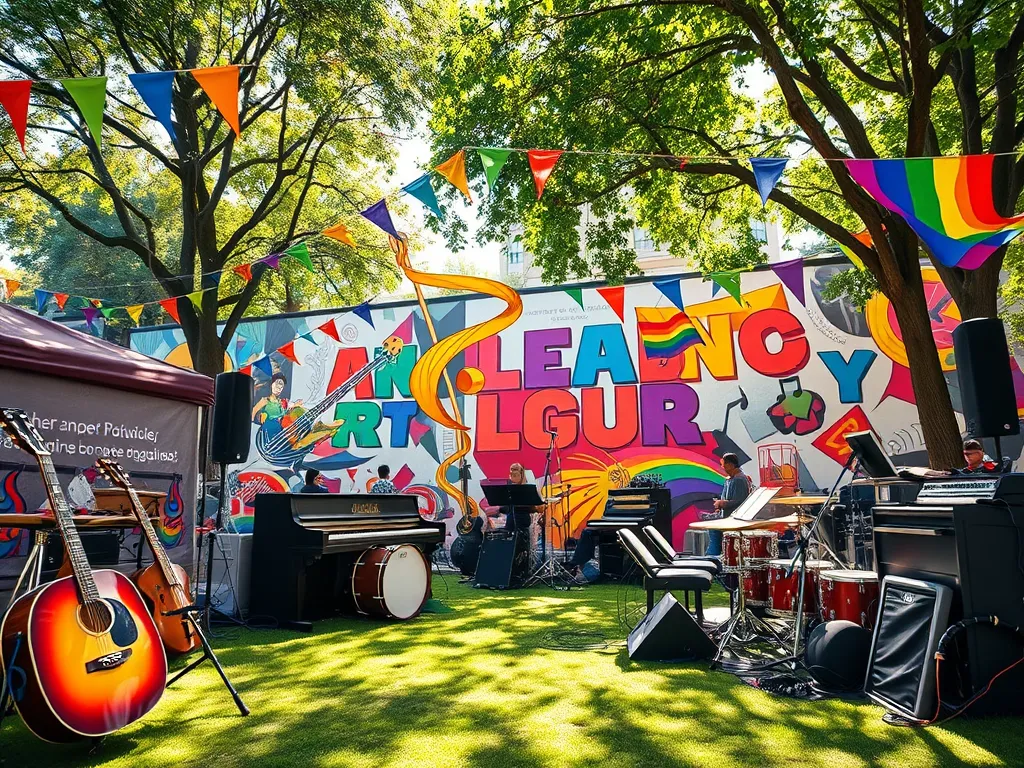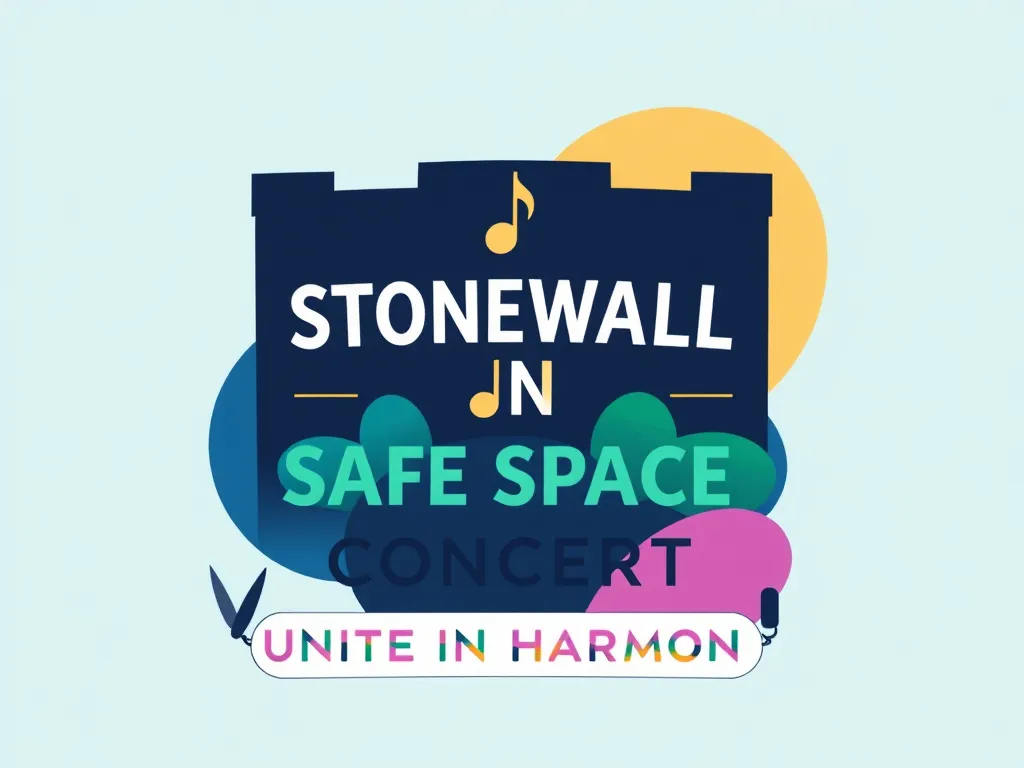Exploring LGBTQ+ Community Engagement Through Music

LGBTQ+ Community Engagement Through Music
Music has always played a pivotal role in societal movements and culture, and the LGBTQ+ community is no exception. LGBTQ+ Community Engagement Through Music has become a powerful avenue for self-expression, activism, and solidarity. Through various genres and forms, music provides a platform for voices that might otherwise go unheard. It enables community members not only to celebrate their identities but also to connect with others who share similar experiences and struggles.
The ties between LGBTQ+ individuals and music are deep-rooted in history, often serving as a lifeline amidst discrimination and prejudice. Events such as Pride festivals utilize music to create an atmosphere of acceptance and joy while also acknowledging the past struggles faced by the LGBTQ+ community. Through music, participants celebrate their identities, advocate for rights, and foster unity within the community. Additionally, grassroots organizations often leverage music to amplify their messages and engage more people in their cause.
Promoting inclusivity, the event showcased the power of LGBTQ+ Community Engagement Through Music as a catalyst for social change.
Beyond the celebratory aspects, LGBTQ+ Community Engagement Through Music also delves into the serious issues faced by individuals within the community. Music has been utilized as a tool for education, raising awareness about discrimination, mental health, and social justice. Artists and musicians often touch on these themes in their work, highlighting the need for stronger support systems and advocacy. Thus, music becomes a powerful means to stimulate conversation and inspire action towards a more just society.
Moreover, the music industry has evolved significantly over the years, with more LGBTQ+ artists gaining visibility and recognition. Their contributions not only enrich the music scene but also provide representation for diverse identities. This visibility encourages younger generations to embrace their authentic selves while contributing to the ongoing fight for equity and inclusion. LGBTQ+ Community Engagement Through Music plays a critical role in shaping cultural narratives and challenging societal norms, advocating for acceptance and understanding in a world that can often be hostile.
In summary, music is a vital component of LGBTQ+ Community Engagement. It connects individuals, fosters understanding, and propels activism. As society continues to progress towards equality, the importance of music in this journey cannot be overstated, serving as both a celebration of identity and a call to action for change.
Historical Impact of Music on LGBTQ+ Culture
The evolution of LGBTQ+ music genres showcases a rich tapestry of styles from disco to punk rock, reflecting the community's fight for acceptance. Genres such as queer pop, camp music, and drag culture have paved the way for countless artists to express their identities and experiences. These musical styles not only entertain but also speak to the distinct narratives and challenges faced by LGBTQ+ individuals throughout history.
Signature artists who have influenced LGBTQ+ rights, such as David Bowie, Madonna, and RuPaul, have used their platforms to challenge stereotypes and advocate for change. Their music often includes themes of liberation and self-acceptance, providing inspiration to countless fans who resonate with their messages. As these artists broke barriers, they paved the way for contemporary LGBTQ+ musicians to share their truths through their art.
Music festivals have become safe spaces for LGBTQ+ individuals to gather and celebrate their identities without fear of judgment. Events like the Sydney Gay and Lesbian Mardi Gras and London Pride have embraced music as a core element, creating an inclusive atmosphere that fosters acceptance and love. These gatherings serve not only as entertainment but also as acts of resistance against discrimination, reminding participants of the importance of community.
Role of Music in LGBTQ+ Activism
Anthems that have become protest songs, such as "I Will Survive" by Gloria Gaynor and "Born This Way" by Lady Gaga, exemplify music's powerful role in LGBTQ+ activism. These songs resonate with messages of empowerment and resilience, encouraging individuals to stand up against oppression and celebrate their identity. They become rallying cries at protests and gatherings, uniting individuals in their fight for justice and equality.
Music is also a tool for fundraising and awareness within the LGBTQ+ community. Charity albums, benefit concerts, and art auctions help raise funds for essential services like mental health support, housing assistance, and legal advocacy. These initiatives not only support community members but also spotlight LGBTQ+ issues to wider audiences, fostering understanding and compassion through the universal language of music.
Collaborations between artists and LGBTQ+ organizations have amplified the impact of music in activism. Initiatives like 'Musicians for Equality' and songs created for world campaigns against homophobia exemplify the powerful connections between art and activism. By aligning themselves with charitable causes, musicians can leverage their influence to advocate for policy changes and promote societal acceptance.
Community Events and Music Festivals
Pride events featuring local artists showcase the richness of LGBTQ+ talent while providing a platform for diverse voices to be heard. These events encourage participants to connect with one another and celebrate their identities through music and performance. Local artists often perform original pieces that reflect their own experiences, capturing the essence of the community and fostering a sense of belonging.
Workshops combining music and activism empower participants to express their stories through art. By holding songwriting sessions focused on themes of identity, acceptance, and activism, these workshops help individuals channel their experiences and emotions into creative outlets. These interactions promote healing and dialogue while reinforcing the importance of self-expression within the LGBTQ+ community.
The significance of music in LGBTQ+ parades cannot be understated. Parades are vibrant displays of pride and resilience where upbeat music serves as a catalyst for joy and unity. The sounds of diverse genres fill the streets, creating an electrifying atmosphere that encourages individuals to express themselves freely. Music also symbolizes the triumph over adversity, serving as a reminder of the community's journey toward acceptance.
Music and Identity in the LGBTQ+ Community
Exploring personal narratives through songwriting enables LGBTQ+ individuals to reflect on their experiences and emotions. Through lyrics that resonate with their specific stories, artists can create work that articulates the joys and struggles faced within the community. This self-reflection not only fosters personal growth but also allows listeners to see themselves within the art, creating a deeper connection to the music.
Celebrating diverse identities through musical expression encourages inclusivity and acceptance. Artists who embrace their intersectional identities often create music that highlights the complexities of their experiences. This representation is crucial in fostering understanding within the wider community and promoting solidarity among different identities within the LGBTQ+ community.
Music genres that resonate with queer experiences, such as pop, hip-hop, and electronic dance music, provide outlets for individuals to explore their identities and find community. Each genre carries its own cultural significance and history, often serving as a refuge for those who feel marginalized. As diverse as the LGBTQ+ community itself, these genres foster creativity while celebrating individuality and shared experiences.
The Influence of Technology on LGBTQ+ Music Engagement
Social media's role in promoting LGBTQ+ artists enables musicians to connect with audiences on a global scale. Platforms like Instagram, TikTok, and Twitter provide the opportunity for artists to showcase their work, share their experiences, and build loyal fanbases. This digital connection fosters a sense of community and allows for the promotion of LGBTQ+ events and initiatives, amplifying the voices of underrepresented artists.
Streaming platforms and LGBTQ+ representation have revolutionized access to music, providing listeners with diverse playlists and curated content centered around queer artists. Playlists featuring LGBTQ+ musicians can introduce audiences to new talent, creating opportunities for discovery and engagement in the community. This increased representation fosters understanding and empathy, making it accessible for all individuals to engage with LGBTQ+ narratives.
Virtual music events during the pandemic presented new opportunities for LGBTQ+ community engagement. Despite physical distancing, artists hosted online concerts and live streams that brought people together, creating a sense of connection and solidarity. These events allowed individuals to gather in a digital space, fostering community and support during an unprecedented time. As the world continues to adapt, the future of music engagement in the LGBTQ+ space will likely emerge even more innovative and inclusive.
